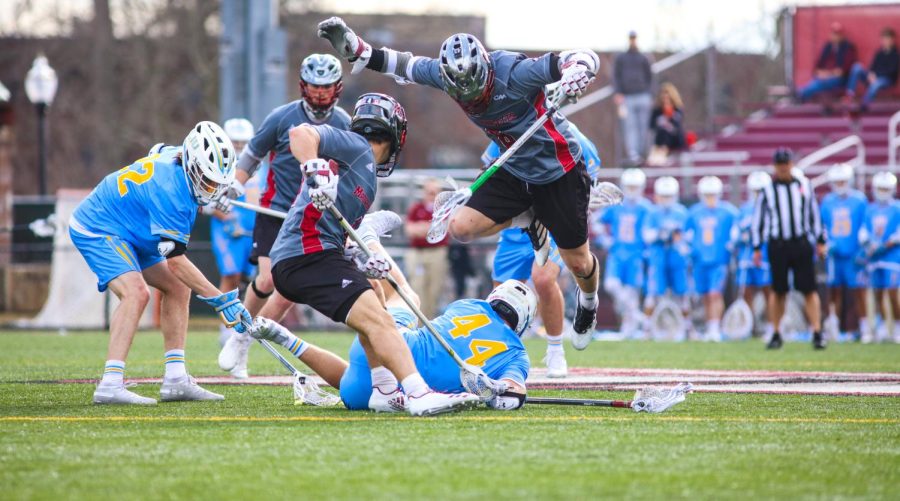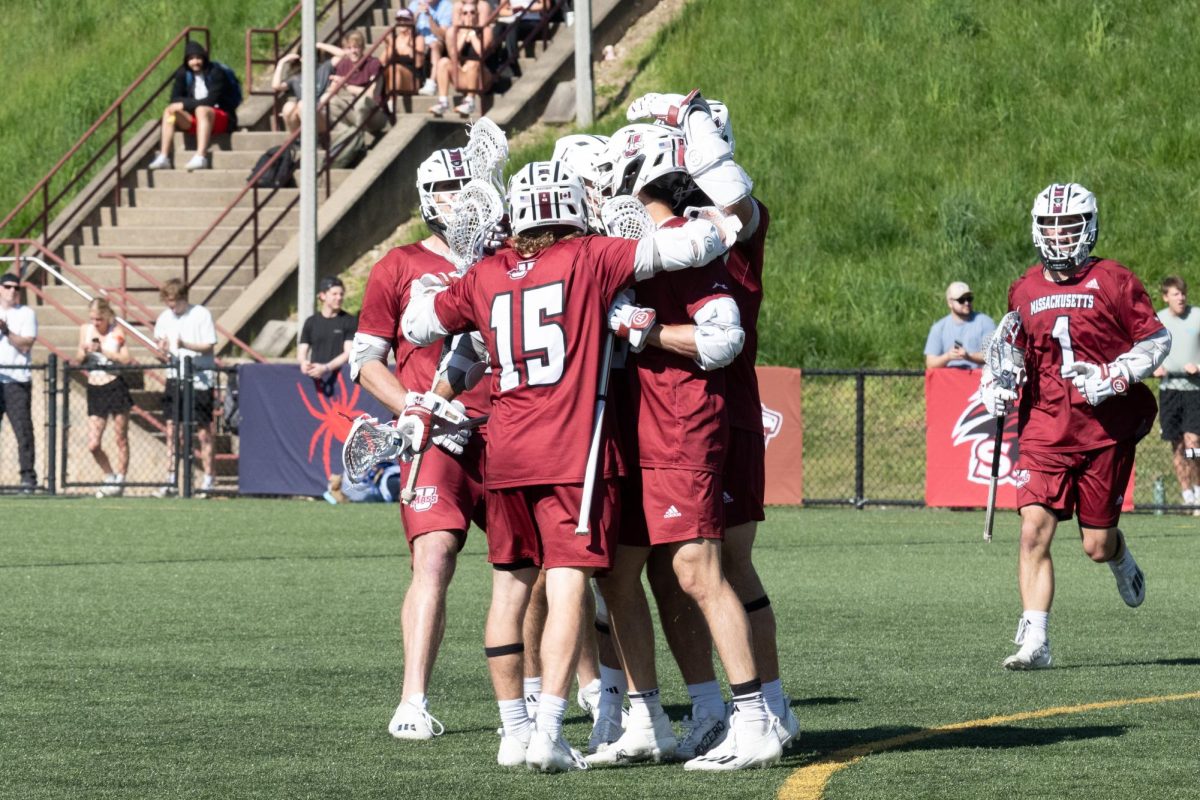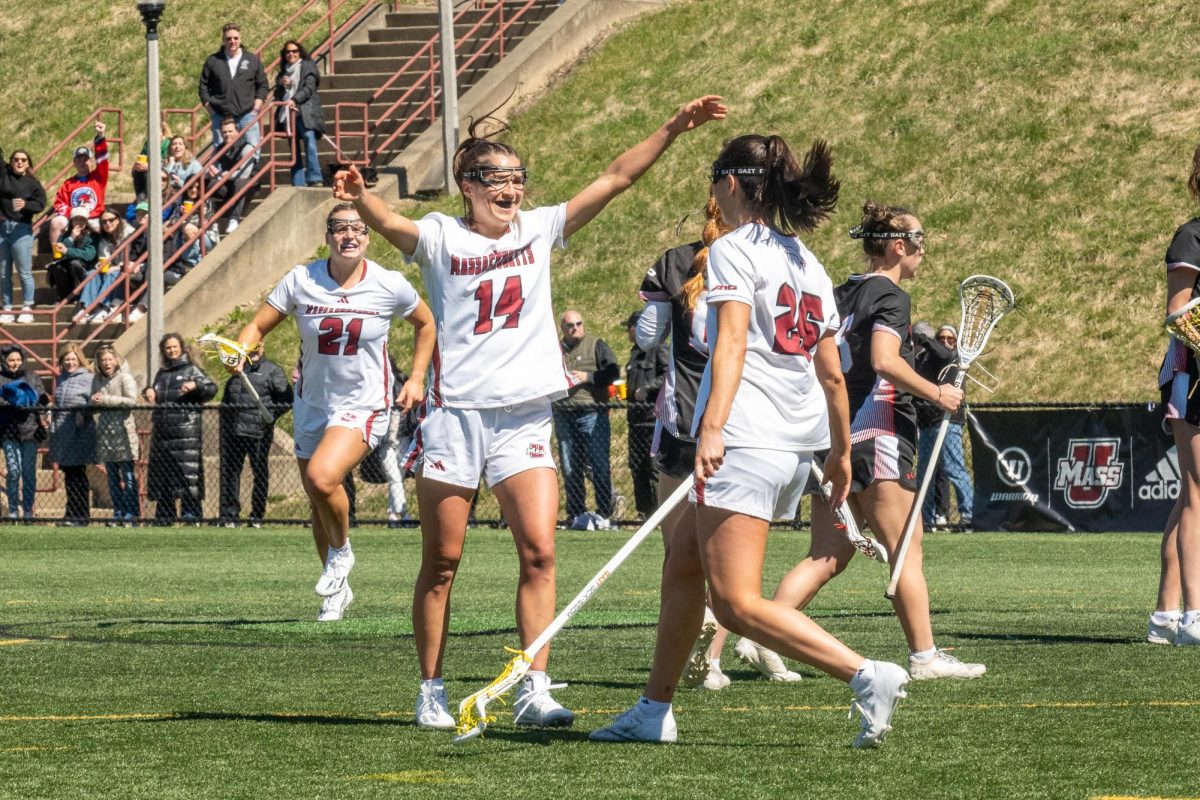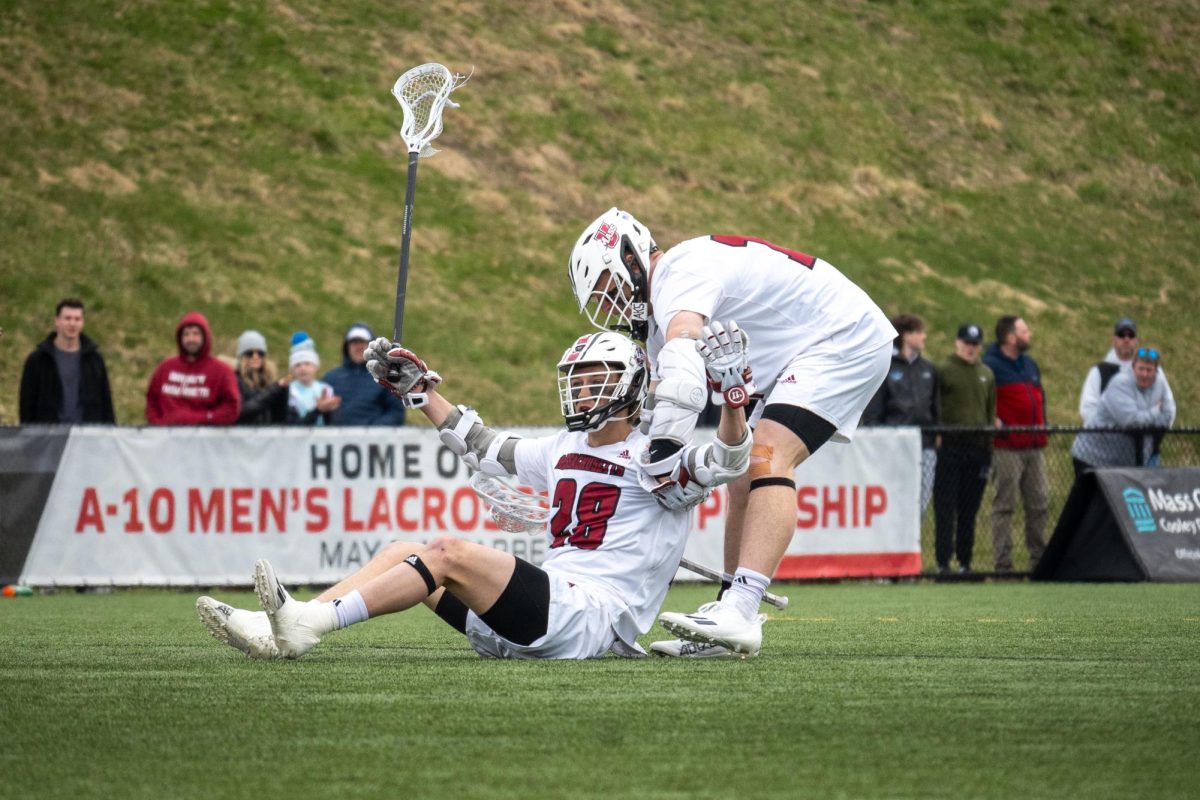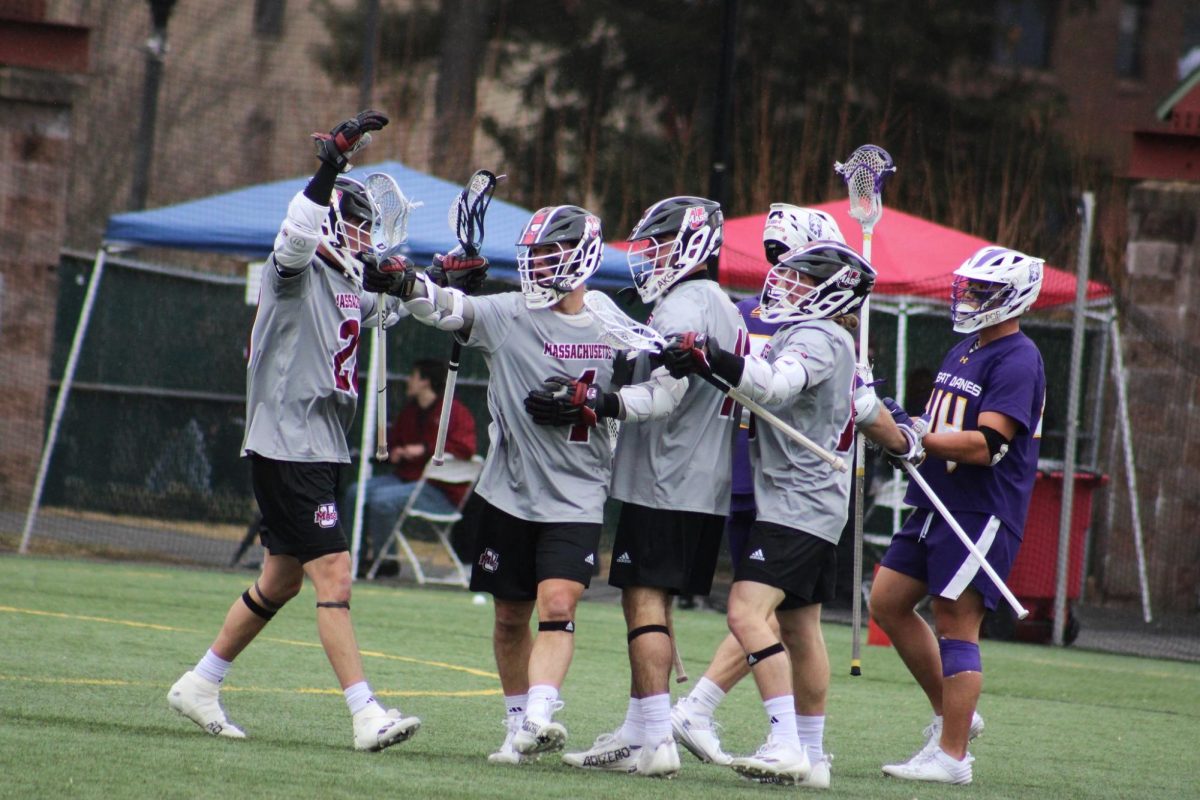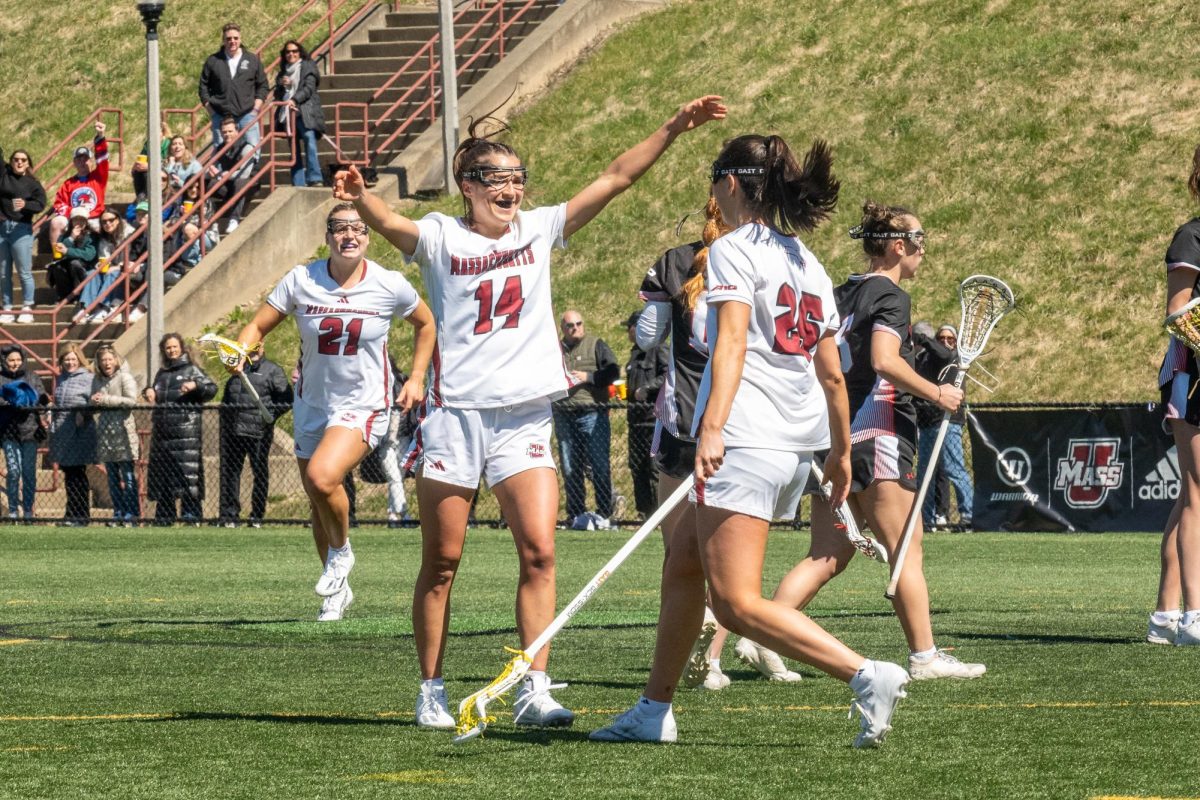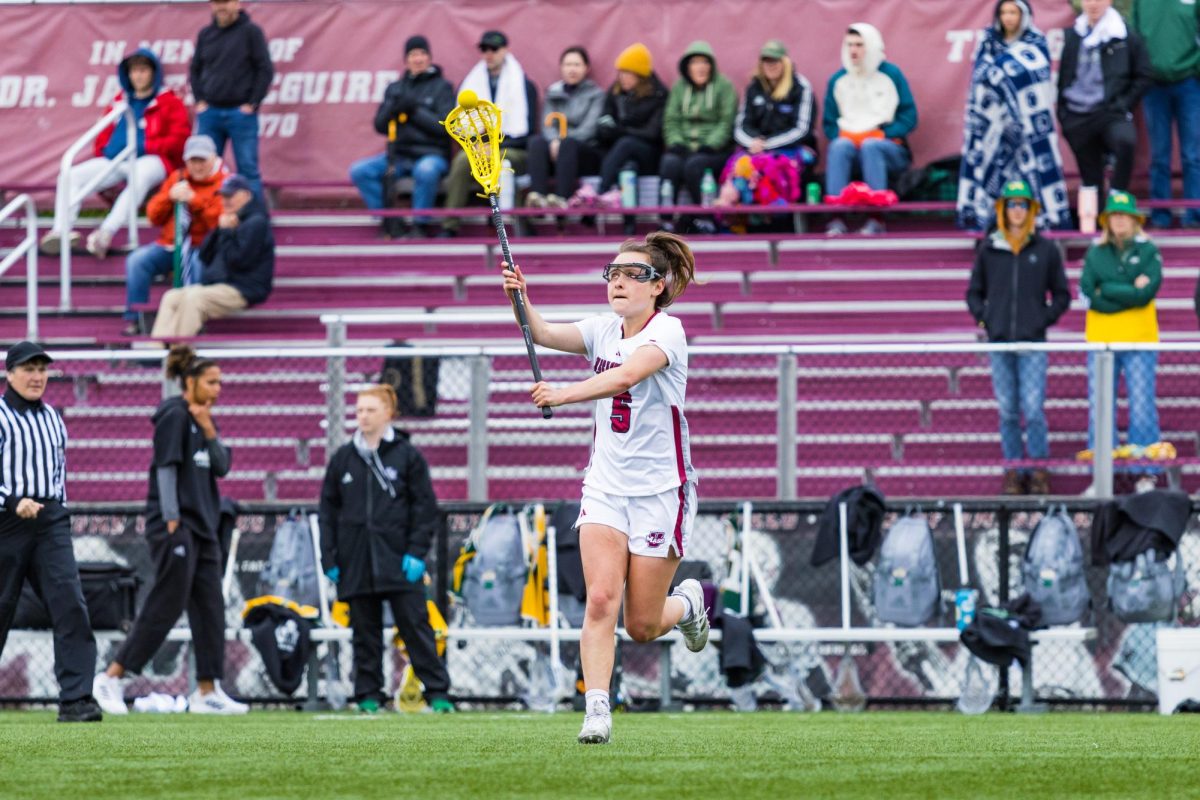At times this season, the Massachusetts men’s lacrosse team displays the deepest offense I’ve seen over my three years covering the team. At other moments, it looks completely stagnant and inefficient.
And on Saturday it showed both the highs and the lows, all in the same game.
I truly believe the Minutemen (6-5, 1-2 Colonial Athletic Association) have eight or nine legitimate offensive threats. The attacking unit of Kevin Tobin, Logan Liljeberg and Gabriel Procyk always stands out, and there’s no question those three know how to bury the ball. Tobin and Liljeberg tallied six points each against Fairfield on Saturday, and Tobin tied his career high with five goals.
On top of the attacking unit, players like James Caddigan, Shane O’Leary, Mike Tobin and Grant Breyo bring valuable strengths to the offensive end as well. O’Leary is often the fastest and most athletic player on the field every time he steps on it. Breyo has a powerful and precise shot from the perimeter and M. Tobin can seemingly score from anywhere.
Despite all the above factors and all of the offensive talent in UMass’ lineup, opposing teams are beginning to find a weakness in the Minutemen: they struggle against zone defense.
The level of offensive play is so high for UMass that it can carve up man defense without any real issues. That task isn’t difficult to accomplish when so many different players can beat their defender one-on-one the way the Minutemen can. On Saturday, they scored 10 goals in a first half stretch that lasted a little over 20 minutes. That put them in complete control of the game and on pace for a phenomenal day in the offensive end.
Then the Stags (7-5, 2-1 CAA) switched to zone. And UMass went over 32 minutes without a goal.
Going that long without a goal just doesn’t get it done in lacrosse. While the Minutemen offense came to a screeching halt, Fairfield rattled off nine straight goals and leaned on that large lead to earn a decisive win over UMass.
Saturday wasn’t the first time the Minutemen struggled to crack a zone defense this season. Delaware mixed in zone defense at times and gave UMass trouble with it, and even with an extra man the Minutemen generate inconsistent results attacking the zone.
A positive to UMass’ Achilles heel is that working on how to beat a zone defense is much easier than teaching a team to beat man.
Getting past a man in open space is more about skill than anything else. Favorable matchups and open space can be created with a pick-and-roll offense, but at the end of the day, attacking man coverage comes down to winning an individual matchup.
Zone, on the other hand, can be beaten in a variety of ways, and offenses can rely on a few different set plays to gain the upper hand and find goals. It’s less about an individual effort and more about a team effort.
The Minutemen have seen plenty of individual offensive success, now they just need to put those pieces together and work more as a unit. If they do that, they have the potential to deploy one of the most potent offenses in the CAA.
So, yes, UMass does have a scoring problem. But it isn’t a big deal yet.
Last season the Minutemen faced an opposite issue: they had no problem working as a unit and beating zone coverage, but couldn’t consistently beat their man one-on-one, and that caused problems for them all season long.
This year, the story is much different. UMass doesn’t have a dark cloud hanging over its head; it isn’t riddled with an inability to bury the ball in the back of the net. It had a couple of setbacks over the last few games but can recover quickly. The Minutemen’s talent isn’t going away any time soon.
Colin McCarthy can be reached at [email protected] and followed on Twitter @colinmccarth_DC.

